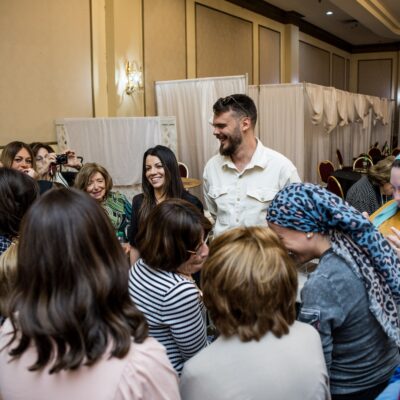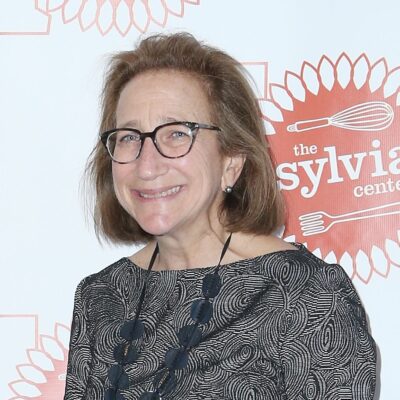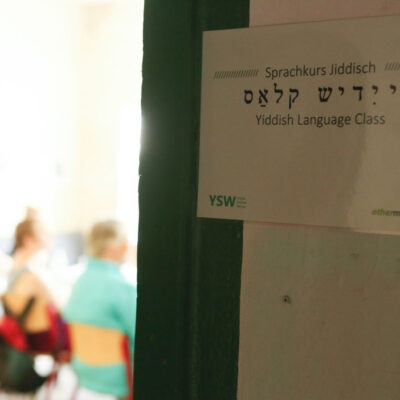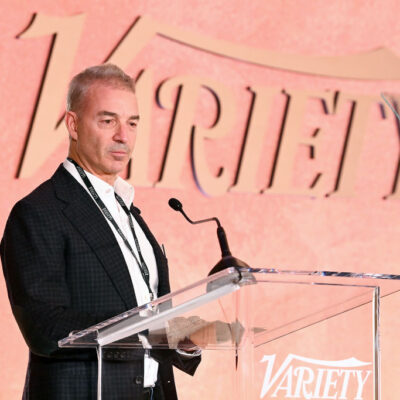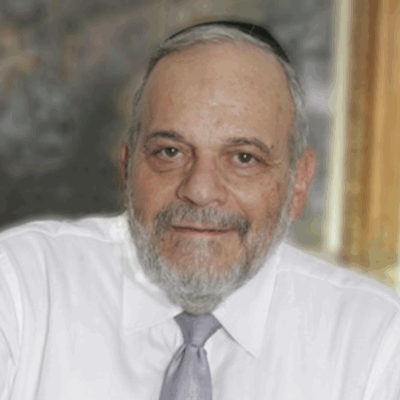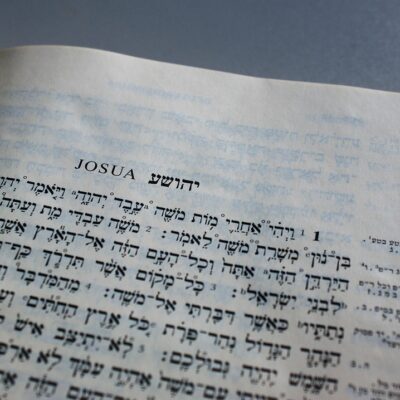BARUCH DAYAN EMET
Rabbi Berel Wein, lawyer, scholar and lecturer, dies at 91
Rabbi Berel Wein's embrace of the use of technology for reaching audiences with his insights opened a door for others in the Orthodox world to do the same.
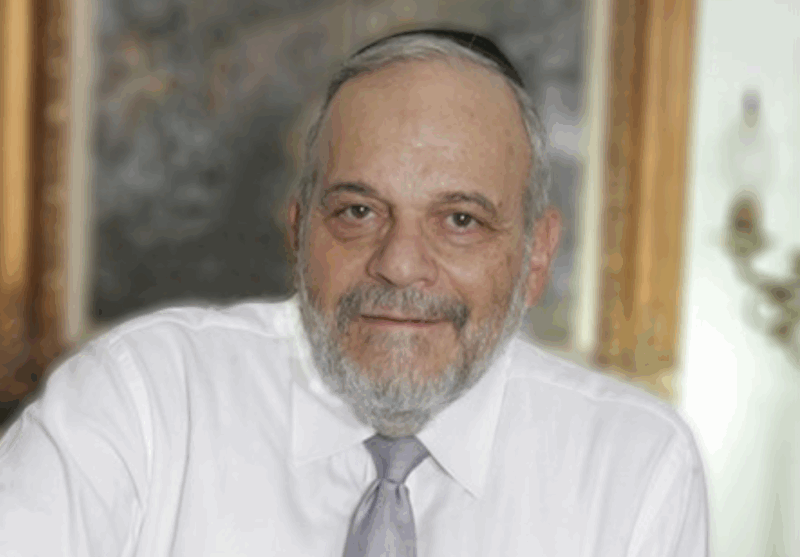
Screenshot/yeshiva[dot]co
Rabbi Berel Wein.
In 1946, Rabbi Isaac Herzog, then the Ashkenazi chief rabbi of the British Mandate of Palestine, traveled to Chicago, where a preteen Berel Wein heard him speak at his yeshiva.
A silver-bearded Herzog broke down crying as he shared a story from a recent trip to postwar Europe, where he met with Pope Pius XII. Herzog had begged the pope to help retrieve the thousands of Jewish children who had been hidden in Catholic institutions as a way to protect them from the Nazis. The pope’s response, however, was no, he would not help — the children had already been baptized.
After telling his story, Herzog, his eyes still wet with tears, looked into the crowd of nearly 250 people.
“I cannot do anything more for those 10,000 children,” Rabbi Wein recalled Herzog saying. “But what are you going to do to build the Jewish people?”
In the years that followed, Rabbi Wein became a lawyer, rabbi, historian, dean, producer and writer whose lectures have been purchased on tape, CD and streaming platforms over 1 million times worldwide. He died on Saturday in Jerusalem at 91.
Born in Chicago in 1934, Rabbi Wein descended from seven generations of Lithuanian rabbis. Like one of his favorite historical figures, Maimonides, Rabbi Wein was educated in both secular studies and religious studies, receiving a bachelor’s degree from Roosevelt University and a law degree from DePaul University while completing his rabbinic ordination at Hebrew Theological College, which his maternal grandfather had founded.
After practicing law for nine years, “I repented,” he said in a 2021 “Meaningful People” podcast appearance, speaking slowly in his signature Chicago accent. “I didn’t really like it because, at least in my experience, I saw people at their worst — people who come to a lawyer, and they want the last nickel.”
Rabbi Wein was fearful of leaving a steady job, but his mentors from Hebrew Theological College urged him to make the jump into being a congregational rabbi, even finding him a job.
“Jewish people have enough lawyers,” Rabbi Chaim Kreiswirth, who served as rosh yeshiva at the Hebrew Theological College from 1947 to 1953, told him. “I want you to be a rav.”
In 1964, during Rabbi Wein’s first year as pulpit rabbi at Beth Israel Congregation in Miami Beach, Fla., his salary was less than his income tax during his last year as a lawyer, “but I was much happier,” he said in his podcast appearance.
After moving to New York City, he began his journey of constant reinvention, first serving as executive vice president of the Union of Orthodox Organizations of America, now the Orthodox Union. Then he became rabbinic administrator of OU Kosher and founded Congregation Bais Torah and Yeshiva Shaarei Torah in Monsey, N.Y. In 1997, he made aliyah and became rabbi at Bet Knesset Hanasi, taught at Ohr Somayach, a baal teshuva yeshiva for secular Jews becoming Orthodox, and wrote for The Jerusalem Post.
“He was constantly doing and thinking and writing and reinventing,” Rabbi Moshe Hauer, the executive vice president of the Orthodox Union, told eJewishPhilanthropy. “He just didn’t look at the Jewish world as if he was sitting on a couch. He felt the urgency of the moment at all times.”
More than anything, Rabbi Wein will be remembered for his embrace of technology. He first began using tapes to send his lessons through the mail during the 1980s.
“He popularized the study of Jewish history for thousands of people in a way which is incredibly engaging,” Rabbi Hauer said. “He used it to bring insight to Jewish life and to contemporary Jewish life into the decisions and the crossroads that we know that we face… People ate up his lectures.”
As technology shifted, Rabbi Wein released lectures on CDs and via YouTube, published over 20 books and produced films through the Destiny Foundation, which he founded in 1996. “The more we’re informed about our history, the more wisdom we have for living today,” Rabbi Wein told Aish.
Because he was so revered in the Orthodox world, people who were skeptical of technology trusted him and he became an example for other religious leaders contemplating making the leap online.
“Instead of Rabbi Wein saying, well, [technology is] not good, it’s not healthy, it’s not this, it’s not that, he said, ‘These kinds of things, you could use them for really good things,’” Michael Kronenberg, treasurer at Bet Knesset Hanassi who also served as president of Congregation Bais Torah during much of Rabbi Wein’s time there, told eJP. “By embracing the technology, we could exponentially disseminate his teachings, whether it be in Jewish history, Jewish thought, Bible studies, philosophy. Many people he never would have reached in the religious world, in the non-religious world, the secular world, he was able to reach.”
Even as his eyesight failed and he suffered health setbacks in his later years, Rabbi Wein continued to push himself. His final appearance was on July 6 in Beit Shemesh, speaking for over 45 minutes and signing autographs of his latest book, Endless Hatred: Antisemitism from the Biblical Era to Modern Times.
“He was in tremendous pain from various infections in his legs,” said Kronenberg, who drove Rabbi Wein to the event, but “wild horses couldn’t keep him away.”
“He wasn’t some kind of person who was just intense and always had to be doing something by demeanor,” Rabbi Hauer said. “He was very laid-back and very measured… And yet he just felt this motivation to keep doing and coming up with something else.”
Even though he taught about expulsion after expulsion, Rabbi Wein remained an optimist, Kronenberg added. To him, the Jewish narrative was one of overcoming hardship and finding themselves in the Holy Land. “There are personal problems on an individual basis, but as a nation, he had faith that it will turn out good for the Jewish people.”
Rabbi Wein had four children with his first wife, Yocheved Levin, who died in 2006. He later married Mira Cohen, who died in 2018. His final book, A Lifetime of Learning — Great Mentors Who Shaped My Mind and Heart is currently finished and in the hands of a graphic designer and printer, nearly ready for release.

